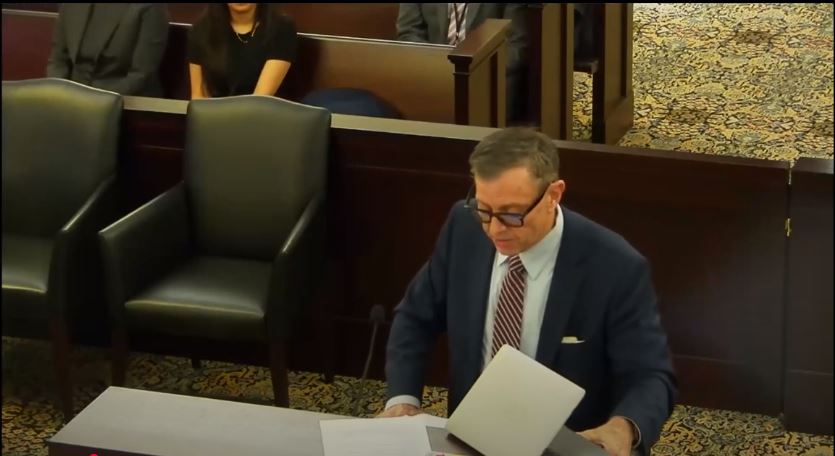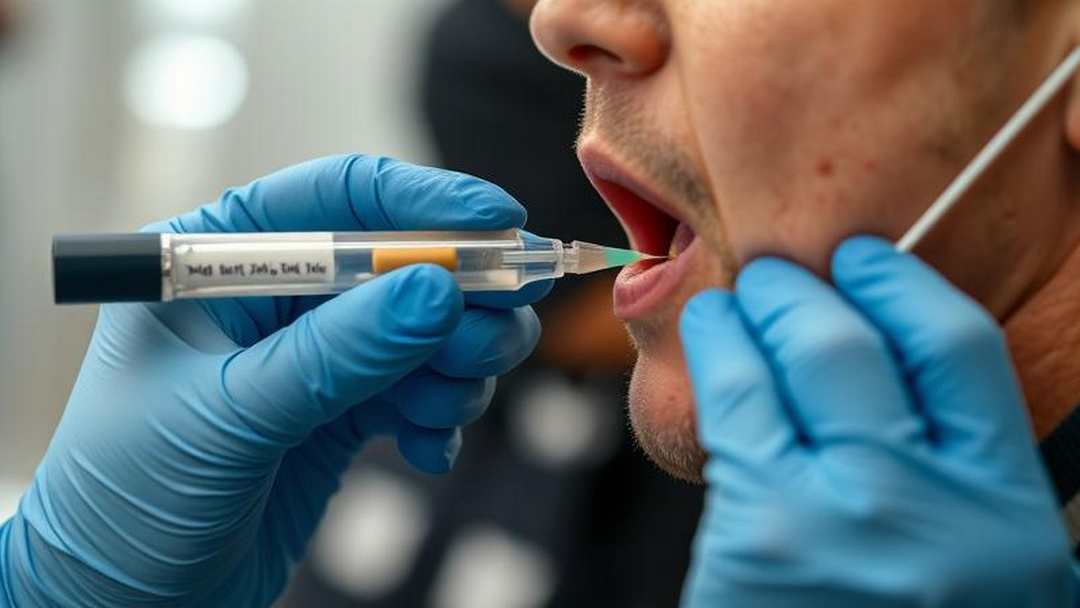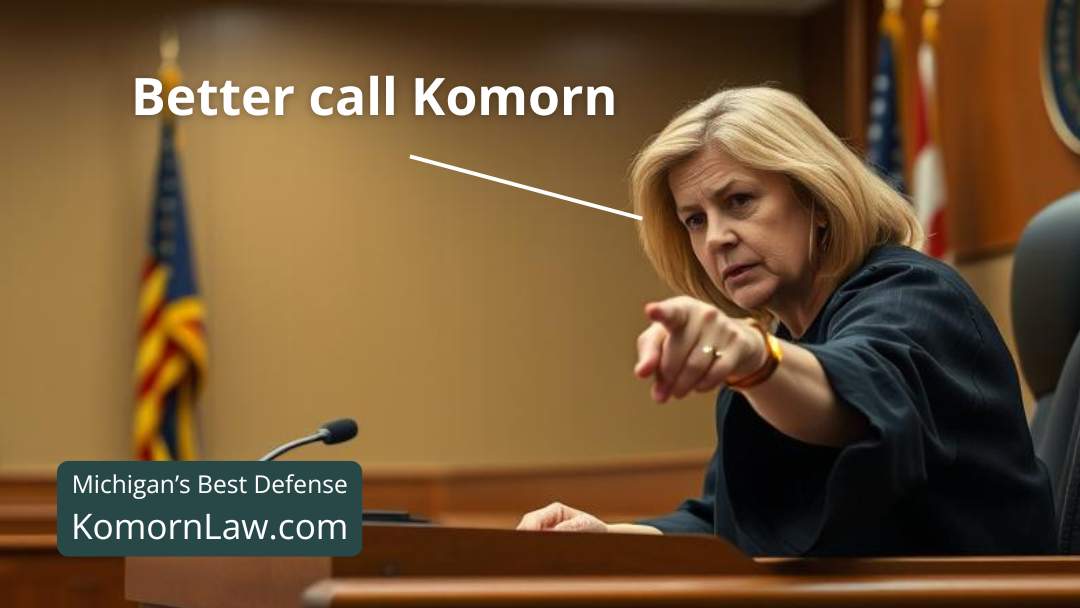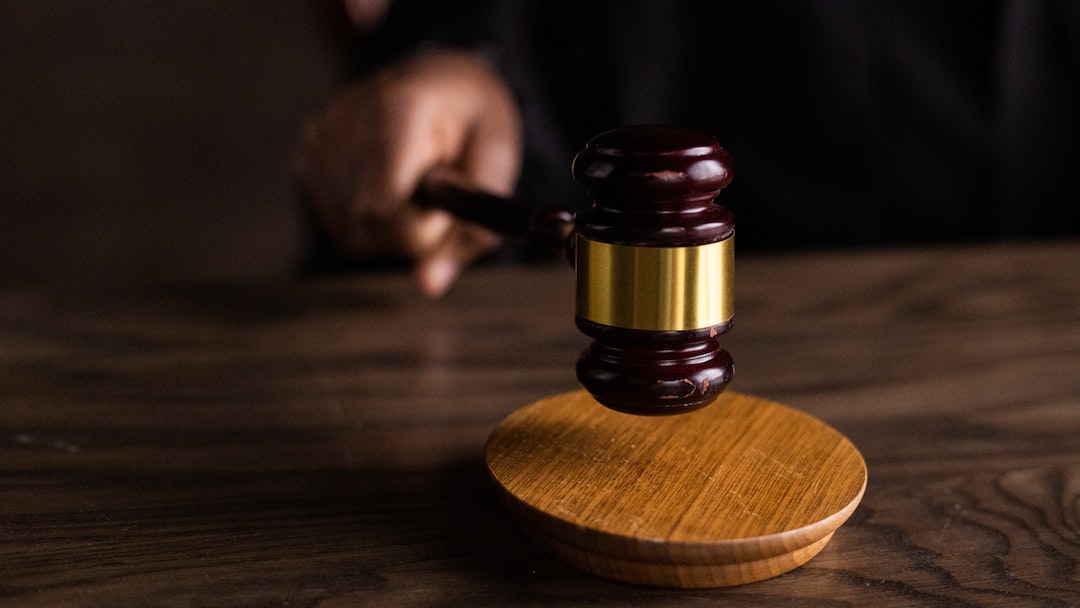
Jul 29, 2023 | Federal Laws
United States Attorney Roger B. Handberg, along with Special Agent in Charge Kareem Carter for the IRS – Criminal Investigation Washington D.C. Field Office, and Special Agent in Charge David Walker for the FBI – Tampa Division, announces that Vitalii Chychasov (37, Ukraine) has pleaded guilty to conspiracy to commit access device fraud and trafficking in unauthorized access devices relating to his administration of SSNDOB Marketplace, a series of websites that operated for years and were used to sell personal information, including the names, dates of birth, and Social Security numbers belonging to individuals in the United States.
The SSNDOB Marketplace has listed the personal information for millions of individuals in the United States, generating more than $19 million in sales revenue.
Charged with drug possession, driving under the influence of marijuana or alcohol?
Contact Komorn Law Immediately to ensure your rights are recognized 248-357-2550.
On June 7, 2022, seizure orders were executed against the domain names of the SSNDOB Marketplace, effectively ceasing the website’s operation.
Chychasov faces a maximum penalty of 15 years in federal prison, and as part of his plea agreement, he has agreed to forfeit the internet domains BLACKJOB.BIZ, SSNDOB.CLUB, SSNDOB.VIP, and SSNDOB.WS, which were used to commit the offenses and were part of the series of domains that comprised the “Marketplace.” Chychasov also agreed to a forfeiture money judgment in the amount of $5 million, the proceeds of the access device fraud.
Chychasov was arrested in March 2022 while attempting to enter Hungary; and was extradited to the United States in July 2022. A second SSNDOB Marketplace administrator, Sergey Pugach, was arrested in May 2022.
According to court records, the SSNDOB administrators created advertisements on dark web criminal forums for the Marketplace’s services, provided customer support functions, and regularly monitored the activities of the sites, including monitoring when purchasers deposited money into their accounts.
The administrators also employed various techniques to protect their anonymity and to thwart detection of their activities, including strategically maintaining servers in various countries, and requiring buyers to use digital payment methods.
Stolen Social Security numbers can be used to commit a variety of frauds, including United States tax fraud, unemployment insurance fraud, loan fraud, credit card fraud, and the like. Investigators determined that a single buyer from the site used stolen personal identifying information that he purchased to steal and launder nearly $10 million.
The U.S. investigation was led by the IRS – Criminal Investigation Cyber Crimes Unit and the FBI – Tampa Division, with assistance from the IRS-Criminal Investigation’s Tampa Field Office. Substantial assistance was also provided by the Department of Justice’s Office of International Affairs, the FBI’s Legal Attaché Offices responsible for Latvia and Cyprus, the Latvian Police, and the Cypriot authorities.
The case is being prosecuted by Assistant United States Attorney Rachel Jones and the asset forfeiture is being handled by Assistant United States Attorney Suzanne Nebesky.
If you or someone you know has been accused of a crime or DUI.
Call Komorn Law and turn the odds in your favor.
Call Now 248-357-2550
Komorn Law Social Media
Recent Posts
Tag Cloud
Blog
Cannabis Science
Criminal Defense Attorney Michael Komorn
Driving
DUI
Forfeiture
Health Benefits of Marijuana
Hemp
Know Your Rights
Komorn Law Blog
LARA-MMFLA Info
Legalization
Marijuana Criminal Defense Attorney Michael Komorn
Medical Marijuana
Medical Marijuana Attorney Michael Komorn
Michigan Laws
Michigan Medical Marhuana Regulation
Michigan Medical Marijuana Act
Michigan Medical Marijuana Criminal Defense
Michigan Medical Marijuana Criminal Defense Attorney Michael Komorn
Michigan News
Michigan Supreme Court
News
Planet Green Trees Radio
Recent Victories
Supreme Court
Uncategorized
USA news
Victories Project
Your Rights
DISCLAIMER
This website and/or post may contain re-posted content, opinions, comments, ads, third party posts, outdated information, posts from disgruntled persons, posts from those with agendas, private stuff, work related information, non work related information and general internet BS. Therefore…Before you believe anything on the internet regarding anything and everything – do your research on “Official Government and State Sites”, Call the Michigan State Police, Check the State Attorney General Website and Consult an Attorney – Use Your Brain. You’re on the internet.

Jul 25, 2023 | Blog, Federal Laws
Komorn Law represents clients that have been charged criminally in the Federal Court System. Call our office if you are looking for top representation 248-357-2550
What is a Federal Defense Attorney?
Federal defense attorneys play a crucial role in the criminal justice system, specializing in representing individuals facing federal charges. With a deep understanding of federal laws and regulations, these legal professionals navigate the complexities of the federal court system to ensure their clients receive fair and just treatment.
From building a strong defense strategy to advocating for their clients’ rights, federal defense attorneys provide essential legal counsel and representation throughout the entire legal process. In this article, we will explore the responsibilities, challenges, and importance of federal defense attorneys in safeguarding the rights of individuals facing federal criminal charges.
Importance of Federal Defense Attorneys
Federal defense attorneys play a critical role in ensuring that defendants receive fair and just treatment in federal court. They are responsible for protecting the rights of their clients and advocating for their best interests throughout the legal process.
Without skilled federal defense attorneys, individuals facing federal charges would be at a significant disadvantage and vulnerable to potential injustices within the system.
Role and Responsibilities of a Federal Defense Attorney
Legal Counsel and Advocate
One of the primary roles of a federal defense attorney is to provide legal counsel and act as an advocate for their clients. They thoroughly analyze the case, advise defendants on their legal options, and develop strategies to effectively navigate the complexities of federal court proceedings. Their goal is to ensure their clients understand their rights and make informed decisions throughout the legal process.
Protecting Defendant’s Rights
Federal defense attorneys are staunch defenders of their clients’ constitutional rights. They carefully scrutinize the evidence presented by the prosecution, challenge any violations of their clients’ rights, and ensure that all legal procedures are followed correctly. They serve as a safeguard against any potential abuses of power, helping to level the playing field and ensure a fair and just trial.
Understanding the Federal Court System
Key Differences between Federal and State Courts
While state courts handle cases that violate state laws, federal courts handle cases involving federal offenses, such as interstate crimes, fraud, drug trafficking, and violations of federal laws.
One key difference is that federal laws apply uniformly throughout the country, whereas state laws can vary from one state to another.
Jurisdiction and Structure of Federal Courts
Federal courts have jurisdiction over cases involving federal laws, constitutional matters, and disputes between states. They are structured hierarchically, with district courts as the trial courts, followed by circuit courts of appeals, and ultimately the Supreme Court as the highest federal court.
Each level of the federal court system has its own rules and procedures that federal defense attorneys must navigate.
Preparing a Strong Defense Strategy
Initial Case Assessment and Legal Research
To develop a strong defense strategy, federal defense attorneys conduct a thorough assessment of the case. They analyze the evidence, interview witnesses, and review applicable laws and precedents.
This careful examination helps them identify any weaknesses in the prosecution’s case and build a solid defense.
Developing a Defense Theory
Based on their assessment and research, federal defense attorneys formulate a defense theory. This theory serves as the foundation for their client’s defense strategy and guides their actions throughout the trial.
They aim to present a compelling argument that challenges the prosecution’s case, introduces reasonable doubt, or establishes a defense based on legal principles or factual evidence.
With the expertise and dedication of federal defense attorneys, individuals facing federal charges can have a fighting chance in the courtroom.
Their role in providing legal counsel, protecting their clients’ rights, understanding the federal court system, and developing a strong defense strategy is essential for ensuring a fair and just legal process.
Investigating the Case and Gathering Evidence
As a federal defense attorney, one of the crucial roles you play is investigating the case and gathering evidence.
You get to dive deep into the details, interview witnesses, and conduct investigations to uncover all the facts.
Interviewing Witnesses and Conducting Investigations
Grilling witnesses, digging into their stories, and trying to find any inconsistencies or hidden truths. The goal is to uncover evidence that supports your client’s innocence or weakens the prosecution’s case.
Collecting and Analyzing Forensic Evidence
Besides getting up close and personal with witnesses, you’ll also be getting into collecting and analyzing forensic evidence is a crucial part of building a solid defense.
Whether it’s analyzing DNA samples, examining fingerprints, or scrutinizing digital evidence, you’ll be using your Sherlock-level deductions to challenge the prosecution’s case.
Navigating Plea Bargains and Negotiations
Ah, the art of negotiation. As a federal defense attorney, you’ll find yourself in the thick of plea bargains and negotiations. This is where your silver tongue and quick-thinking skills come into play.
Exploring Plea Bargain Options
Plea bargains can be a lifeline for both the defendant and the prosecution. As a federal defense attorney, you’ll explore potential plea deals that could benefit your client. This involves analyzing the strengths and weaknesses of the case, understanding the potential consequences of going to trial, and negotiating a deal that satisfies both parties (or at least gets your client the best possible outcome).
Negotiating with Prosecution
Negotiating with the prosecution is like a legal dance-off. You’ll be juggling arguments, counteroffers, and legal tactics to try to reach a favorable agreement. Your job is to protect your client’s interests and make sure they get a fair deal. It’s all about finding that sweet spot where both sides can leave the dance floor feeling satisfied (and not too bruised).
Representing Clients in Federal Court Trials
Lights, camera, courtroom drama! As a federal defense attorney, you’ll have the honor of representing your client in federal court trials. It’s your chance to shine, or more accurately, your chance to present a compelling defense strategy.
Building a Strong Defense Strategy for Trial
Preparing for trial is like preparing for a Broadway performance. You’ll analyze the prosecution’s case, research legal precedents, and develop a solid defense strategy. It’s about crafting a narrative that showcases your client’s innocence or raises reasonable doubts in the minds of the jury. You’ll assemble a team of expert witnesses, create killer opening and closing statements, and do everything in your power to secure a not guilty verdict.
Cross-Examination of Witnesses
Cross-examining witnesses is like being a legal bulldog with a bone. You’ll dissect the prosecution’s witnesses, challenging their credibility, poking holes in their testimonies, and exposing inconsistencies. It’s your opportunity to shine a spotlight on the weaknesses in the prosecution’s case while advocating for your client’s innocence. Just remember, no actual bulldogs allowed in the courtroom.
Post-trial Proceedings and Appeals
The show isn’t over when the jury delivers their verdict. As a federal defense attorney, there are still important tasks to tackle after the trial concludes.
Sentencing and Mitigation
After a guilty verdict (let’s hope that’s not the case), it’s time to navigate the choppy waters of sentencing and mitigation. You’ll present arguments and evidence to convince the judge to hand down the most lenient sentence possible. It’s all about advocating for your client and emphasizing any mitigating factors that could sway the judge’s decision.
Filing Appeals and Reviewing Decisions
When the verdict doesn’t go your way (cue dramatic music), you may have to take the case to the next level. Filing appeals and reviewing decisions is like playing a legal chess game. You’ll analyze the trial proceedings, search for errors or misconduct, and present your case to a higher court. It’s all about fighting for justice and making sure your client’s rights are upheld.In conclusion, federal defense attorneys are instrumental in protecting the rights and interests of individuals facing federal criminal charges. Their expertise in federal law, strategic defense planning, and courtroom advocacy ensures a fair legal process and potential favorable outcomes for their clients. By understanding the role and responsibilities of federal defense attorneys, as well as the intricacies of the federal court system, individuals can make informed decisions when seeking legal representation. With their dedication and commitment to justice, federal defense attorneys play a vital role in preserving the fundamental principles of fairness and equality within the criminal justice system.
Anything you say will be used against you!
Call our office before you say anything.
Komorn Law 248-357-2550
Frequently Asked Questions
1. What is the difference between a federal defense attorney and a state defense attorney?
Federal defense attorneys specialize in representing individuals facing federal charges, which typically involve violations of federal laws or crimes that occur across state lines. State defense attorneys, on the other hand, focus on representing individuals charged with crimes that fall under state jurisdiction. The laws, procedures, and court systems involved in federal and state cases differ significantly, necessitating specialized knowledge and experience for effective representation.
2. How do federal defense attorneys build a strong defense strategy?
Federal defense attorneys meticulously analyze the details of the case, conduct investigations, interview witnesses, and gather evidence to build a robust defense strategy. They scrutinize every aspect of the prosecution’s case, identify weaknesses, and explore potential legal defenses. Additionally, they may consult with experts, such as forensic analysts or investigators, to challenge the prosecution’s evidence and present a compelling defense on behalf of their clients.
3. Can federal defense attorneys negotiate plea bargains?
Yes, federal defense attorneys can negotiate plea bargains on behalf of their clients. Plea bargains involve reaching an agreement with the prosecution, wherein the defendant agrees to plead guilty to certain charges in exchange for a reduced sentence or lesser charges. Federal defense attorneys leverage their knowledge of federal laws, sentencing guidelines, and their clients’ individual circumstances to negotiate favorable plea deals that best serve their clients’ interests.
4. What happens if a federal case goes to trial?
If a federal case goes to trial, federal defense attorneys play a critical role in representing their clients in court. They thoroughly prepare for trial by crafting a compelling defense strategy, selecting jurors, cross-examining witnesses, presenting evidence, and making persuasive arguments on behalf of their clients. During the trial, federal defense attorneys strive to challenge the prosecution’s case and establish reasonable doubt, aiming for an acquittal or a favorable outcome for their clients.
If you or someone you know has been accused of a crime or DUI.
Call Komorn Law – Call Now 248-357-2550
Komorn Law Social Media
Recent Posts
DISCLAIMER
In a legal environment that continues to evolve, it is essential to stay informed and seek guidance from knowledgeable professionals. Before acting on any information you find on the internet, this website, any linked website, any referring website or any verbal or written information consult a licensed attorney. Contact Komorn Law today to discuss your case and learn how we can assist you in navigating the complexities of Michigan’s laws. Consult an Attorney – Remember you’re on the internet.








































